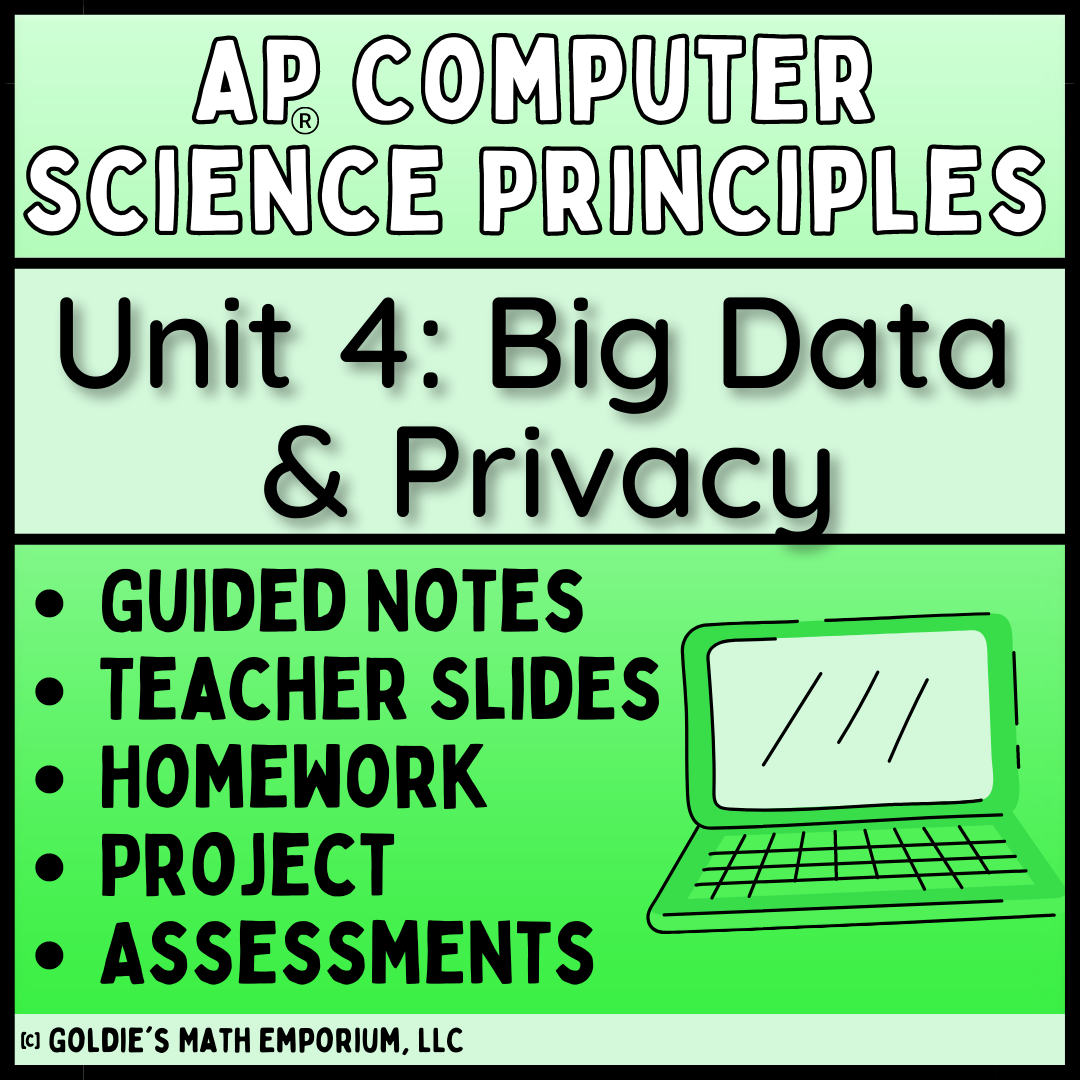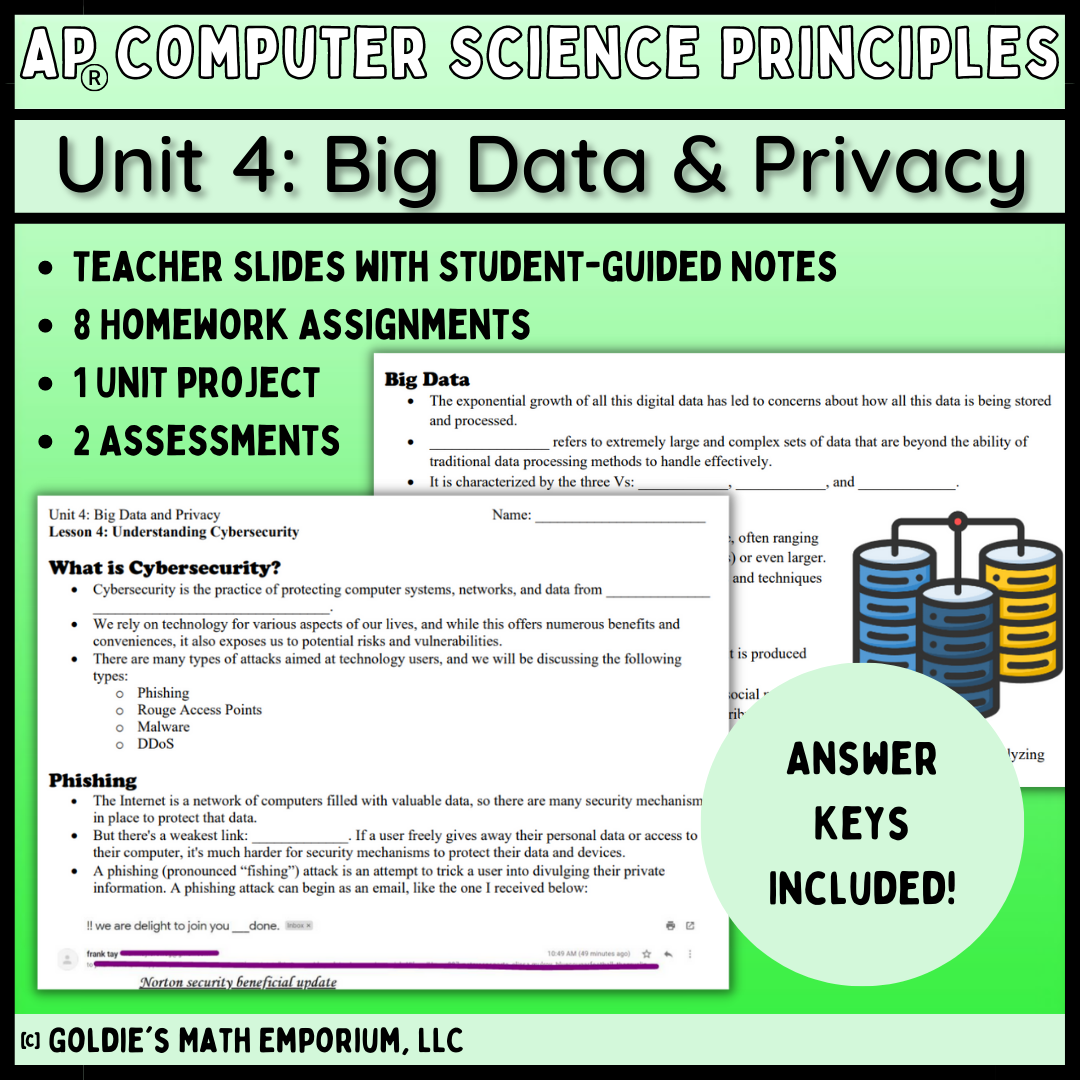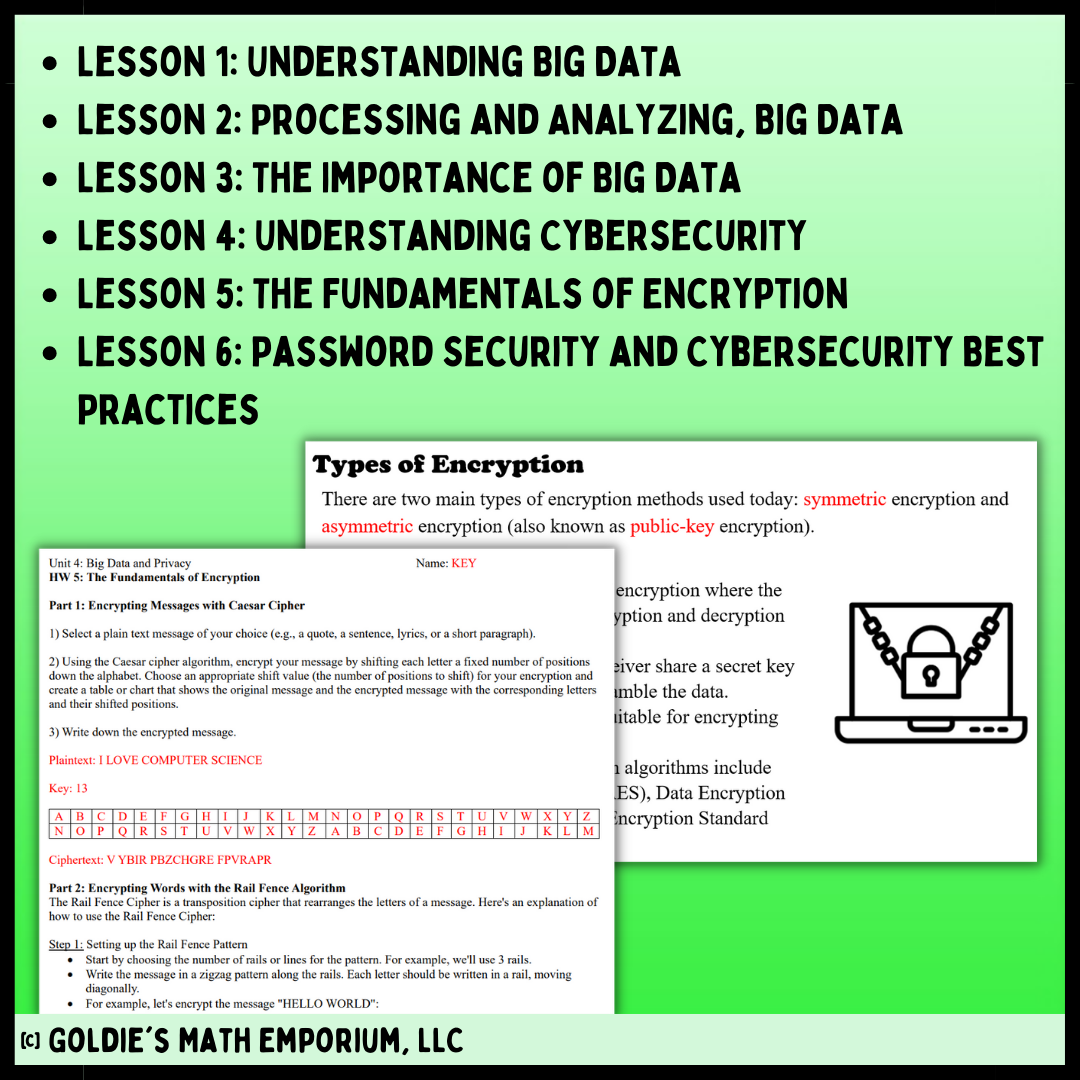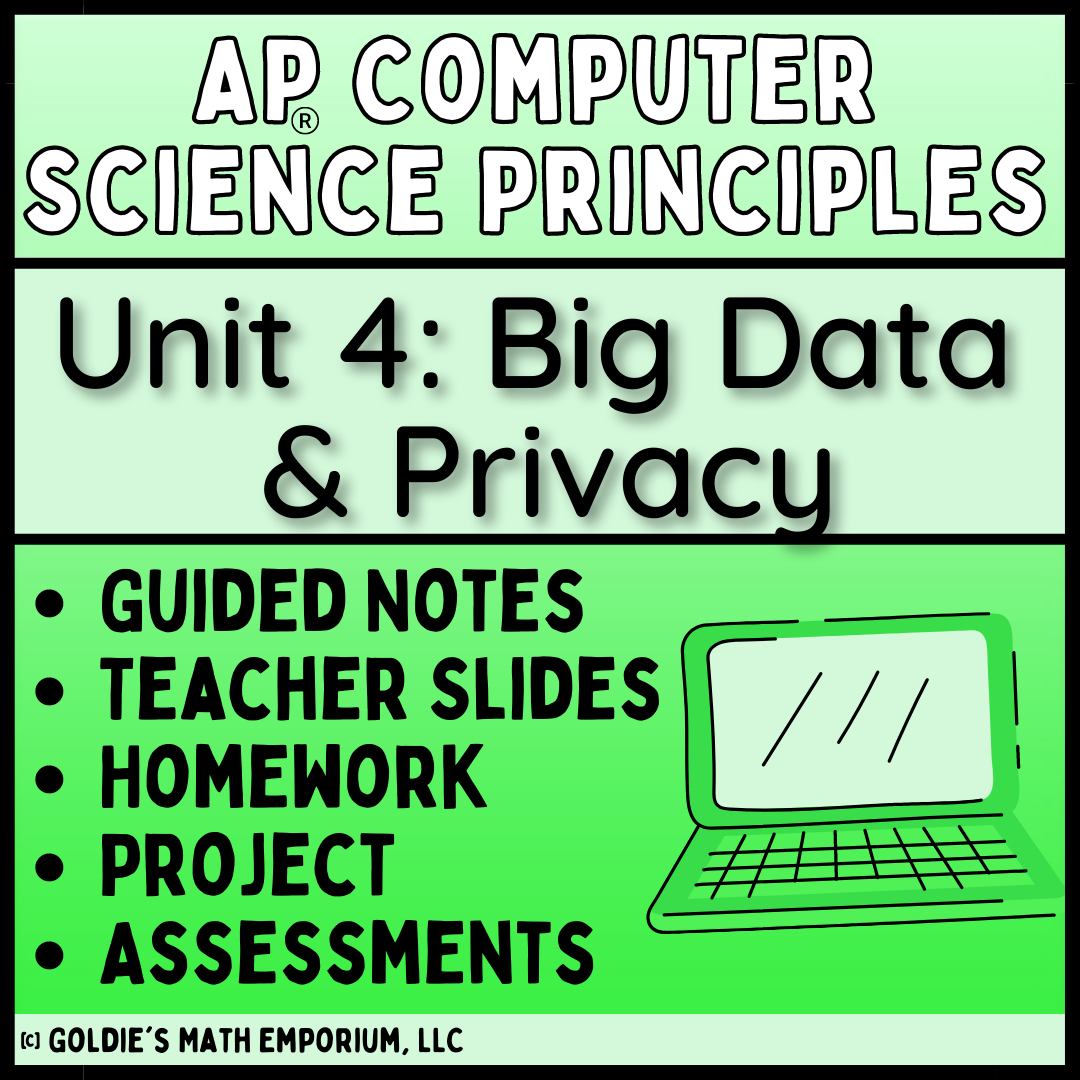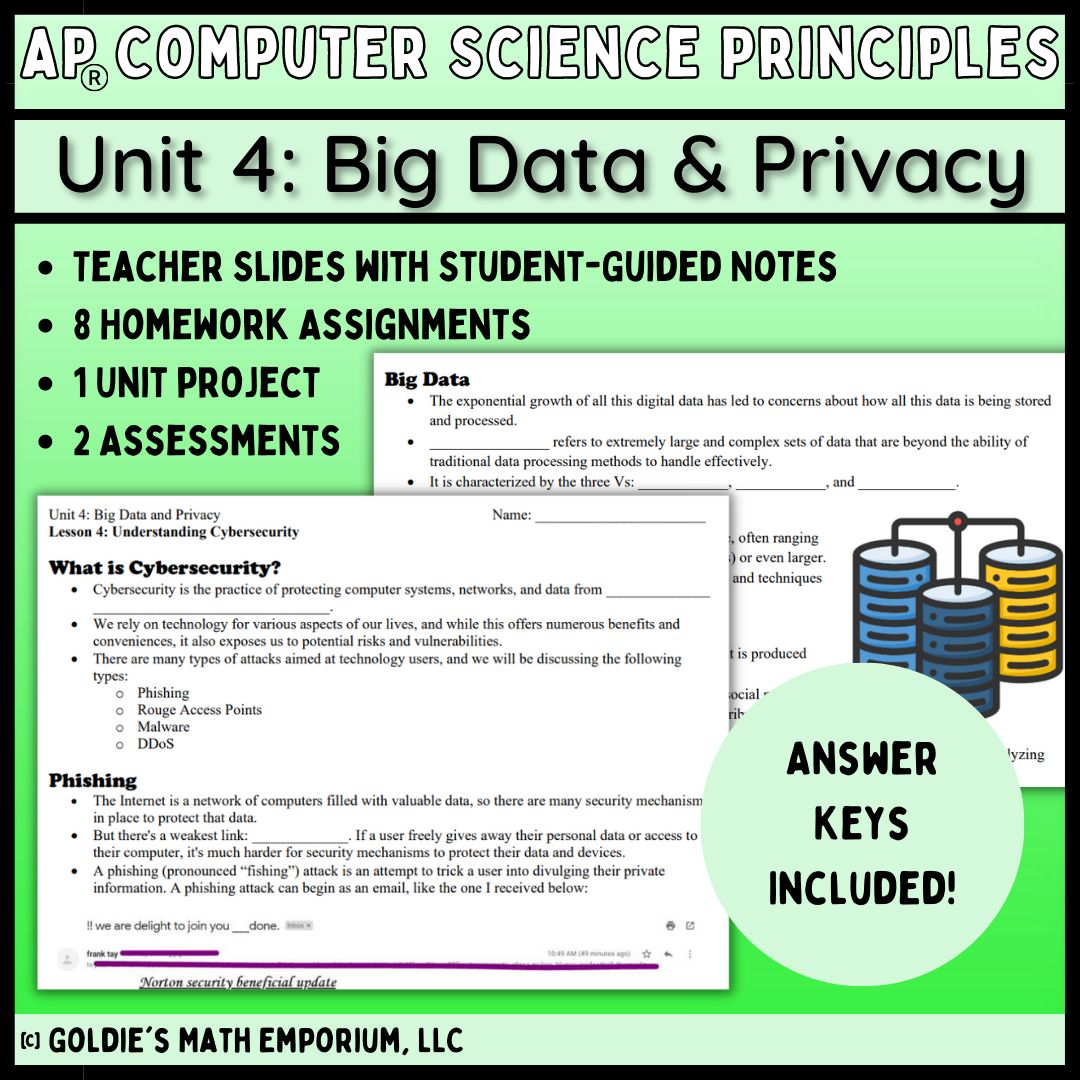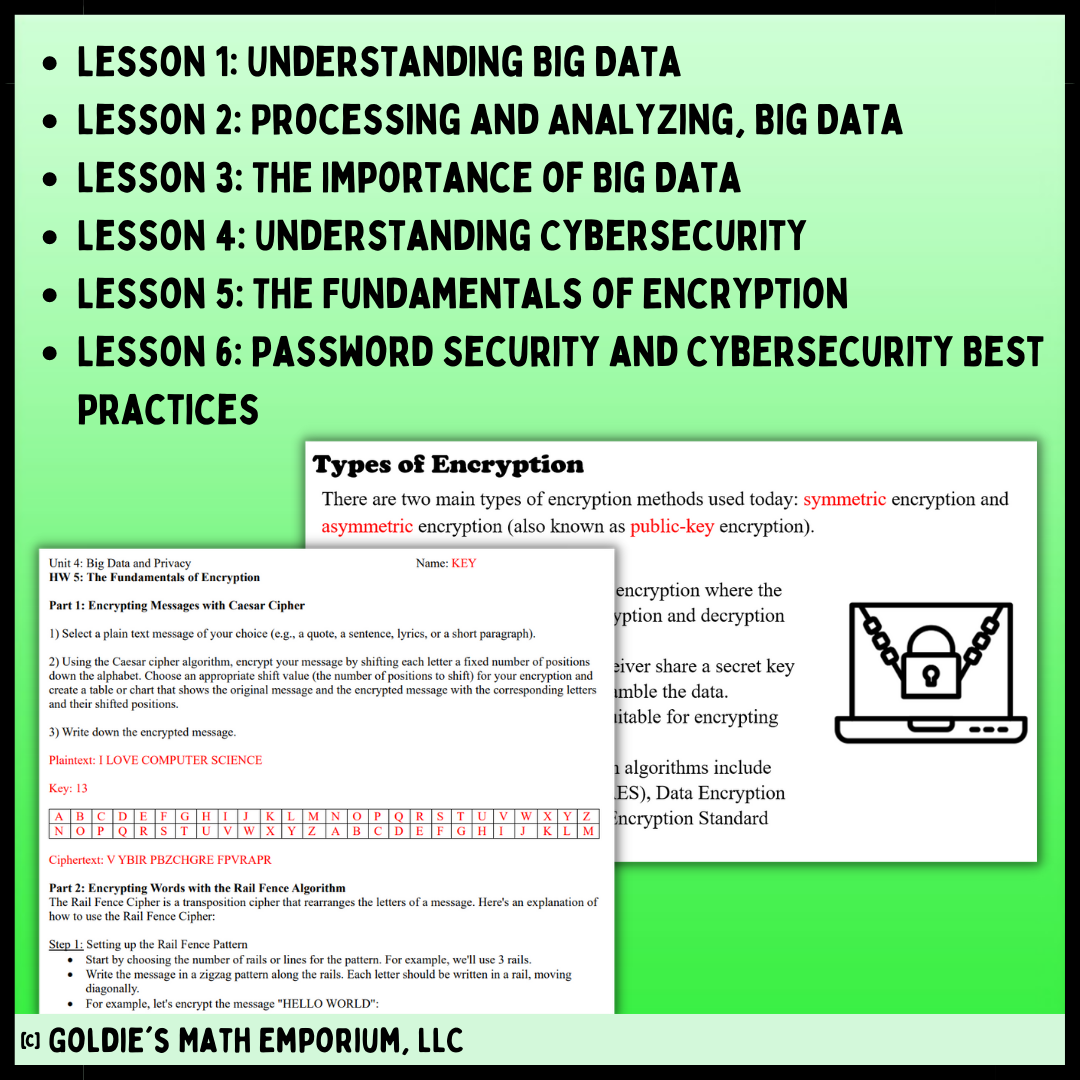Goldie's Math Emporium
Goldie’s AP® Computer Science Principles – Unit 4 Big Data and Privacy
Goldie’s AP® Computer Science Principles – Unit 4 Big Data and Privacy
Couldn't load pickup availability
AP® Computer Science Principles
Unit 4 – Big Data and Privacy
Guided Notes, Assignments, and Assessment
*NEW & UPDATED for 2023-24 School Year!!*
This unit was designed to save your most precious resource: YOUR TIME! In this complete unit, you will have everything you need to teach, support, and assess your students on everything involving big data and cybersecurity in the APÒ Computer Science Principles course.
This unit is part of my larger curriculum bundle: Goldie’s FULL CURRICULUM for AP® CSP
This resource contains the following:
- Student guided notes (6 lessons) with a teacher answer key
- Teacher PowerPoint slides to accompany each lesson, review, and assessment day
- 8 homework assignments with answer keys
- 1 Unit Project
- 2 Multiple Choice Assessments with an answer key
All of the resources are 100% editable, so you are able to modify to fit your classroom needs. The zip folder includes all the Word documents for the resources, which you have permission to edit. The PDF version and answer keys are included for your convenience.
I teach this course without a textbook, so everything that is provided here, can be used without supplementation. The only thing I use in my class that is NOT included in this content is the secured AP® exam questions.
******************************************************************************
Lesson 1: Understanding Big Data
- Students will be able to explain what big data is, its characteristics, and its importance in various fields.
- Students will be able to discuss real-life examples of big data applications in areas like healthcare, marketing, and finance.
- Students will be able to explain the different types of data, including structured, unstructured, and semi-structured data.
- Students will explore the concepts of data storage and management
- Students will understand the different types of data storage management including a distributed file system, data warehouse, and cloud storage.
Lesson 2: Processing, Analyzing, and Visualizing Big Data
- Students will discuss the importance of data analysis in extracting meaningful insights from big data.
- Students will understand the steps for processing big data including data collection, data cleaning, data processing, data analysis, data visualization, and decision making.
- Students will explore the importance of statistical analysis, machine learning, and data mining on big data.
- Students will describe what information can be extracted from data and metadata.
Lesson 3: The Importance of Secure Data
- Students will explain the importance of data security, privacy, and ethics in data storage and management.
- Students will provide examples of data breaches and their implications.
- Students will discuss the ethical and legal concerns related to data tracking, including consent and data protection laws.
- Students will describe the beneficial and harmful effects of computing
- Students will explain how bias exists in computing innovations
- Students will explain how the use of computing can raise legal and ethical concerns
Lesson 4: Understanding Cybersecurity
- Students will explain the importance of cybersecurity in today's digital world and its role in protecting sensitive information.
- Students will discuss common cybersecurity threats, such as rogue access points, malware, & DDoS attacks.
- Students will explain the concept of phishing and provide tips on how to identify and avoid phishing attempts.
- Students will provide examples of high-profile cybersecurity incidents and their consequences.
Lesson 5: The Fundamentals of Encryption
- Students will explain what encryption is and how it works to secure data.
- Students will explain the concept of symmetric encryption using the Cesar Cipher.
- Students will explain the concept of public key encryption.
- Students will discuss the concept of encryption keys and their role in the encryption and decryption process.
Lesson 6: Password Security and Cybersecurity Best Practices
- Students will discuss the importance of strong passwords and password best practices.
- Students will explain the concept of MFA and its effectiveness in enhancing security.
- Students will address cybersecurity best practices that individuals should follow to protect themselves online.
******************************************************************************
Looking for more AP Computer Science Principles content?
Unit 1: Introduction to Computer Science
Unit 5: Programming in AP® Pseudocode
Unit 6: Social Issues in Computing
-OR-
Goldie’s FULL CURRICULUM for AP® Computer Science Principles (with Python)
Goldie’s FULL CURRICULUM for AP® Computer Science Principles (w/o Python)
******************************************************************************
If you need extra explanations or additional guidance, I would love to help!!
AP® is a registered trademark of the College Board® which does not endorse this product.
I want to provide the best possible resources to help other teachers out! You will be notified of any future updates and additions to this product and it will be free of charge. Your support is important and I thank you for allowing me to continue doing what I love to do.
© Goldie’s Math Emporium, LLC
This work is bound by copyright laws and editing (beyond your own classroom use), selling, redistributing, or posting all or part of these documents on the Internet is strictly prohibited. Violations are subject to the Digital Millennium Copyright Act.
Share
